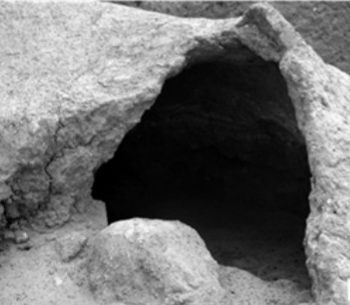New data on the study of the Tasmola archaeological culture of Saryarka
Views: 339 / PDF downloads: 548
DOI:
https://doi.org/10.32523/tsj.02-2019/2-3Keywords:
Tasmola culture; Saryarka; barrow architecture; settlements; kystau; dromos; stones sculpturesAbstract
The article presents historical and cultural reconstructions of the research results of
the last decades of the Tasmola archaeological culture of Central Kazakhstan. Tasmola archaeological
culture in the frame work of the VII-III centuries BC was highlighted by M.K. Kadyrbaev
in 1966. Currently, the Tasmola culture source data base has been replenished with new types of
archaeological sites: “royal” mounds, settlements, stone statues. An analysis of them using new
natural-science methods makes it possible to make adjustments to the culturalal and chronological
periodization of the Saka era of the Saryаrka, and to consider the canons of the barrower chitecture
of then nobility and the compositional structure of the living space of the steppe nomads.
The archaeological classification of artifacts, radiocarbon analyzes date the Tasmola culture on
the 8th-6th centuries BC. At this time, large elite barrows appear, the architectural style of settled
monument sis emerging, which has been preserved until modern times, until the Kazakhs’ wintering
(kystau). Study of the structure of the land part of elite memorials confirms the concept of the
early Saka barrow tradition as architecturally complex and multi functional religious buildings.
The stone sculptures of the Tasmolatribes’ are characterized by a complex of signs that distinguish
the min to a separate group of ancient statuary art of the Scythian-Saka era.
Downloads
Reference
Gumerova E.F. (2018) Osobennosti hudozhestvennogo osvoeniya mira detstva v tatarskoi detskoi proze konca XX – nachala XXI vekov: na primere tvorchestva F. Yarullina, G. Gil’manova, R. Bashara: avtoref. Dis. ... kand. Filol. Nauk: 10.01.02 / Gumerova E. F.; (Mesto zashchity: Kazan. (Privolzh.) feder. Un-t) [Features of the artistic development of the world of childhood in Tatar children’s prose of the late XX – early XXI centuries: the example of the works of F. Yarullin, G. Gilmanov, R. Bashar: author. Dis. ... cand. Filol. Sciences: 10.01.02 / Gumerova E.F. Place of protection: Kazan. (Volga.) Feder. Un-t]. Kazan. 26 p. [in Russian].
Mingazova L.I. (2011) ХХ gasyr tatar balalar әdәbiyaty: үzenchәleklәre һәm үsesh tendenciyalәre (Tatarskaya detskaya literatura XX veka: svoeobrazie i tendencii razvitiya) [Tatar children’s literature of the XX century: origi-nality and development trends]. Kazan, Heter. 312 p. [in Tatar].
Safina L.M. (2012) Intertekstual’naya dialogichnost’ v poezii Renata Harisa: avtoref. Dis. k.f.n [Intertextual di-alogue in the poetry of Renat Haris]: avtoref. Dis. K.f.n. [author. Dis. Candidate of Philology].Moskva [Moscow], MPGU. 17 p. [in Russian].
Hairullina A.A. (2011) Renat Haris һәm Mәhmүt Hәsәnov izhatynda balalar dөn’yasy chagylyshy // Renat Haris һәm tatar shig”riyate [Childhood in the creation of Renat Kharis and Mahmoud Khasanov // Renat Kharis and tatar poetry]. Kazan, Idel-Press. P. 136 – 141. [in Tatar].
Harisov R.M. (2015) Bez kunakka barabyz / My idem v gosti [We are going to guest]. Kazan, Tat. Kit. Nәshr [Kazan]. 16 p. [in Tatar].
Harisov R.M. (2001) Әbәk / Pyatnishki [Fifteen]. Kazan: Mәgarif [Kazan:Magarif ]. 20 p. [in Tatar].
Harisov R.M. (1996) Lap – lap [Paw-paw]. Kazan: Mәgarif [Kazan: Magarif]. 16 p. [in Tatar].
Harisov R.M. (1988) Matur oj / Krasivyi dom [A beautiful house]. Kazan, Tat. Kit. Nәshr [Kazan, Tatar Publish-ing House]. 18 p. [in Tatar].
Harisov R.M. (1998) Shigyr’ yazgan kalәm belәn / Perom, pishushchim stihi / Bu the pen of a poet: Shigyr’lәr һәm rәsemnәr [Pen writing poetry]. Kazan: Mәgarif [Kazan: Magarif]. 93 p. [in Tatar].
Hasanova F.F. (2000) Poetika tekstov stiha Renata Harisa (lingvisticheskaya poetika): avtoref. Dis. K.f.n [Poetics of verses by Renat Haris (linguistic poetics): author. Dis. Candidate of Philology]. Kazan, IYALI im. G. Ibragimova AN RT [Kazan,G.Ibragimov Institute of language, literature and Art Tatarstan Academy of Sciences]. 35 p. [in Rus-sian].
Hasanova F.F. (2005) Renat Haris shig”riyate (Poeziya Renata Harisa) [Poetry of Renate Haris]. Kazan, RIC «Shkola» [Publishing Center “School”]. 260 p. [in Russian].
Hismatova L. (2011) Cvetooboznachenie v tvorchestve Renata Harisa (Renat Haris i sovremennaya tatarskaya poeziya) // Renat Haris һәm tatarr shig”riyate [Color designation in the work of Renat Haris [Renat Haris and modern Tatar poetry]]. Kazan, Idel-Press. P. 231-234. [in Russian].
Chukovskij K.I. (1999) Zapovedi dlya detskih poetov [Commandments for children’s poets] // Chukovskij K.I. Stihi i skazki. Ot dvuh do pyati [Poems and tales. Two to five].Moskva [Moscow], Planeta detstva [Planet of child-hood]. P. 624 – 660. [in Russian].

Downloads
Published
How to Cite
Issue
Section
License
Copyright (c) 2021 Turkic Studies Journals

This work is licensed under a Creative Commons Attribution-NonCommercial 4.0 International License.























